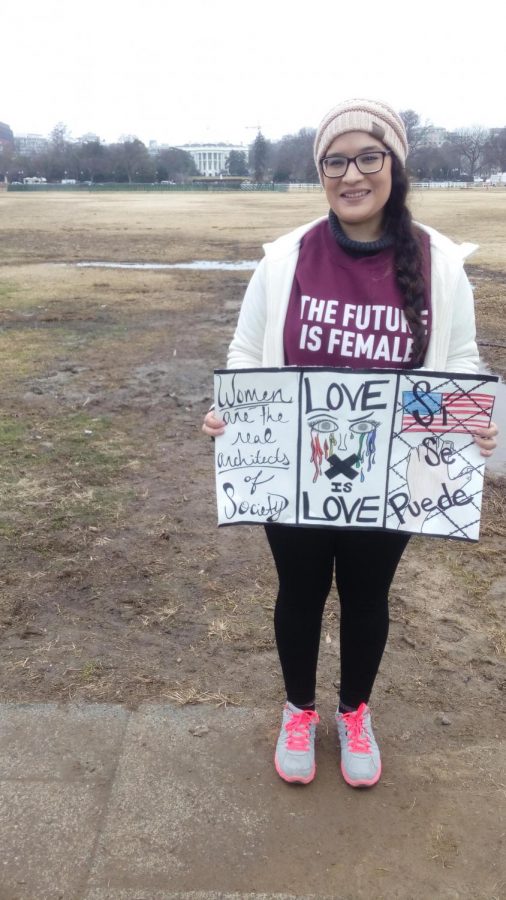UNA student “grateful” to march in Washington D.C.
February 3, 2017
Jan. 20 was the inauguration of President Donald Trump in Washington, D.C. At the same time, junior Ashley Garcia left Florence to join over thousands of men and women in the Women’s March Jan. 21.
“I wanted to go because I was passionate about issues surrounding immigration, women’s rights and other topics,” she said. “I didn’t want others to feel as if they didn’t have a voice.”
Garcia’s trip to Washington, D.C., was a collaboration between professors in the English Department and others.
Garcia expressed an interest in going to the march, said Cynthia Burkhead, chair of the English department.
“After the election, when there was word that there was going to be a women’s march in Washington, a number of members in the English Department talked about how important we felt it was for somebody in the student generation to have the opportunity to go,” she said. “We wanted to be able to honor and accommodate a young woman’s, student’s desire to participate in the democratic process.”
Burkhead said while the idea to send a student began in the English Department, the department did not sponsor the trip.
“It was just members of the department, and others across the campus, who wanted to support a younger woman going to the march,” she said. “We also had a few community members who heard what we were doing and contributed very generously.”
Garcia said she was grateful to attend.
“Prior to going to the march, I was a bit skeptical about the whole idea,” she said. “The things that affected me during the election wasn’t just women’s rights, and that’s how the media portrayed it. When I got to D.C., I saw so many different signs that supported immigrant’s rights and the LGBTQ community. I’m glad I was able to go to see how inclusive the Women’s March was because it wasn’t just women there.”
Over 500,000 marchers were at the Women’s March in Washington D.C, according to Erica Chenoweth at the University of Denver and Jeremy Pressman at the University of Connecticut.
“It wasn’t until I arrived back home, that I realized the march had three times the amount of people than the inauguration,” she said. “It was an amazing feeling to realize there was that much support there.”
Garcia said she experienced multiple emotions on the journey to the Women’s March.
“The journey was very nerve-wracking,” she said. “It was my first time on a plane, and I didn’t know what to expect. It was really inspiring to be surrounded by many like-minded individuals because of dealing with all of the hateful rhetoric being spread around during the election.”
The women’s march in Florence provided similar emotions, Garcia said.
Junior Hannah Pierce said she believes she can make a difference marching.
Burkhead said the importance of the march changes depending on the person.
“While many people were there for general reasons, such as wanting to make sure that all issues were highlighted in this march, there were also some people who had specific concerns, whether it be women’s healthcare, immigration, education or violence against women,” she said. “Everybody had their own reason for being there. Regardless of their individual reasons, they were all there as one.”
Garcia said she wants to continue practicing the ideas behind the Women’s March.
“The Women’s March has turned into a movement,” she said. “We can now continue the vision that we had when we decided to march. We will create a welcoming environment. The messages that I took away that I will continue are that people are going to be there for you and to show others compassion.”


